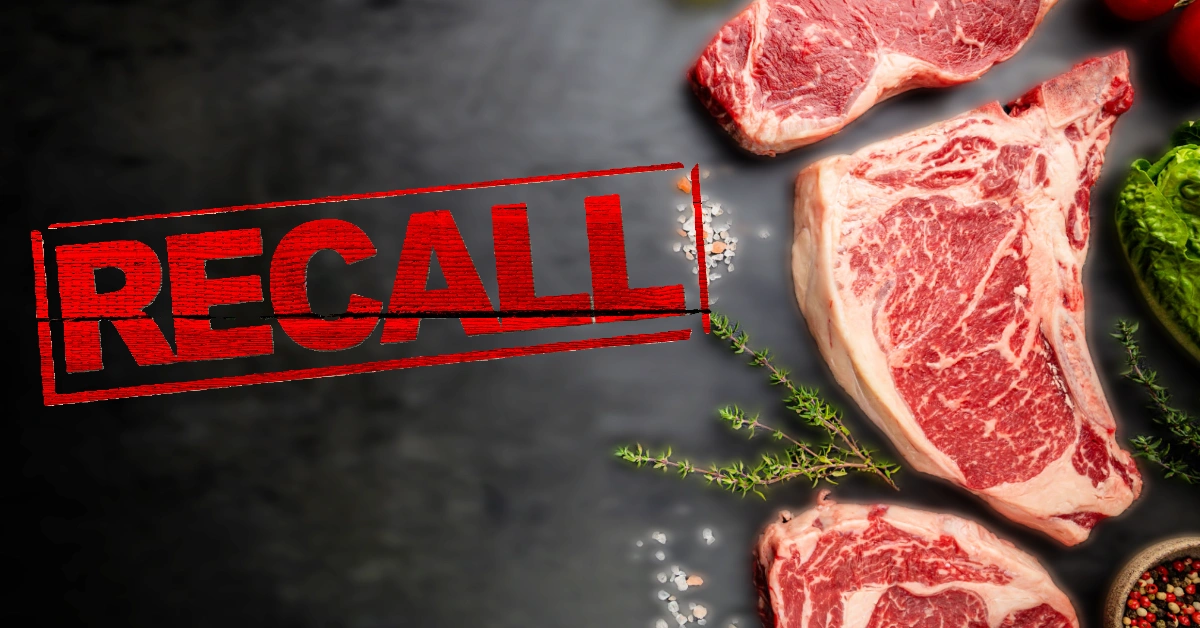Public Health Alert Issued Over Contaminated Deli Meats in Multiple Provinces
A growing Salmonella outbreak in Canada has prompted an urgent recall of several meat products sold in multiple provinces, with health authorities confirming dozens of illnesses and several hospitalizations.
The Canadian Food Inspection Agency (CFIA) announced that various salami products under the Bona and Rea brands are being pulled from retail shelves due to contamination concerns. The recall follows an active investigation into a foodborne illness outbreak by federal food safety authorities.
Table of Contents
Confirmed Salmonella Cases and Hospitalizations
The Public Health Agency of Canada (PHAC) has reported 57 lab-confirmed cases of Salmonella infection. The majority of illnesses have occurred in Alberta (44 cases) and Ontario (13 cases). Seven individuals have been hospitalized as a result of the outbreak, though no fatalities have been reported to date.
Illnesses were recorded between mid-April and late May, and officials say more cases could emerge due to the delay in reporting from the time of infection.
Recalled Salami Products and Distribution Areas
The recall involves three specific deli meats:
- Bona Brand Mild Genova Salami
Variable sizes, no UPC, Code: 5035 226 - Rea Brand Genoa Salami Sweet
Variable sizes, UPC: 8 41571 04226 2
Codes: 5035 226 and 5049 226 - Rea Brand Genoa Salami Hot
Variable sizes, UPC: 8 41571 04228 6
Codes: 5020 228 and 5035 228
According to the CFIA, these products were sold across Ontario, Alberta, and Manitoba, including grocery stores, butcher shops, specialty food markets, restaurants, cafes, and deli counters. Some may have been sold without labels or identifiable codes, making the recall particularly concerning for consumers.
Salmonella Exposure and Health Risks
PHAC warned that many who became ill had consumed prepared sandwiches or deli meats where these products were used. Infected individuals range in age from infants to over 100 years old.
Salmonella symptoms typically appear six to 72 hours after exposure and can include fever, chills, stomach cramps, diarrhea, nausea, and vomiting. Symptoms usually last four to seven days, but in some cases, especially for children, seniors, or immunocompromised individuals, the illness can become severe and may require hospitalization.
This particular strain of Salmonella is resistant to certain antibiotics, though alternative treatments are available, PHAC noted.
Recall: Hellmann’s Classic Burger Sauce Pulled from Shelves Across Canada Due to Spoilage Risk
What Consumers Should Do Now
Consumers are strongly advised not to eat, serve, or distribute any of the affected products. Items should be discarded immediately or returned to the place of purchase.
If you’re unsure whether you purchased a recalled item, contact the retailer directly for confirmation. The CFIA emphasized that contaminated meat may not show signs of spoilage — it can look and smell normal while still posing serious health risks.
Anyone who develops symptoms after eating potentially contaminated meat should seek medical attention and notify their health-care provider about the possible exposure.
Investigation Ongoing, More Recalls Possible
The CFIA confirmed it is conducting a full investigation to determine the source and scope of the contamination and said additional recalls could be announced as new information becomes available. The agency is also verifying that affected products are fully removed from the marketplace.
This is a developing public health situation. Canadians are urged to stay informed, check recall notices, and exercise caution when purchasing or consuming deli meats.
For the most current updates, visit inspection.canada.ca/recalls or contact the CFIA’s food safety hotline.

